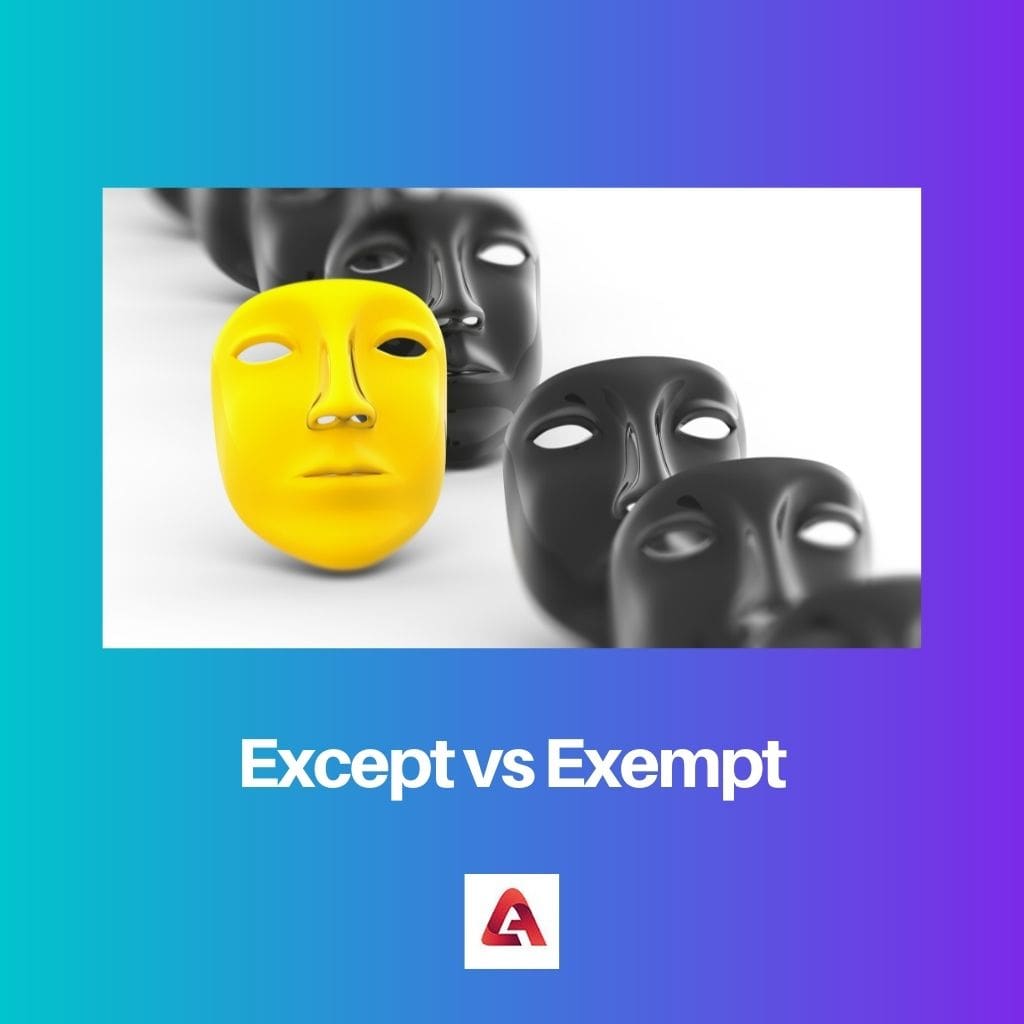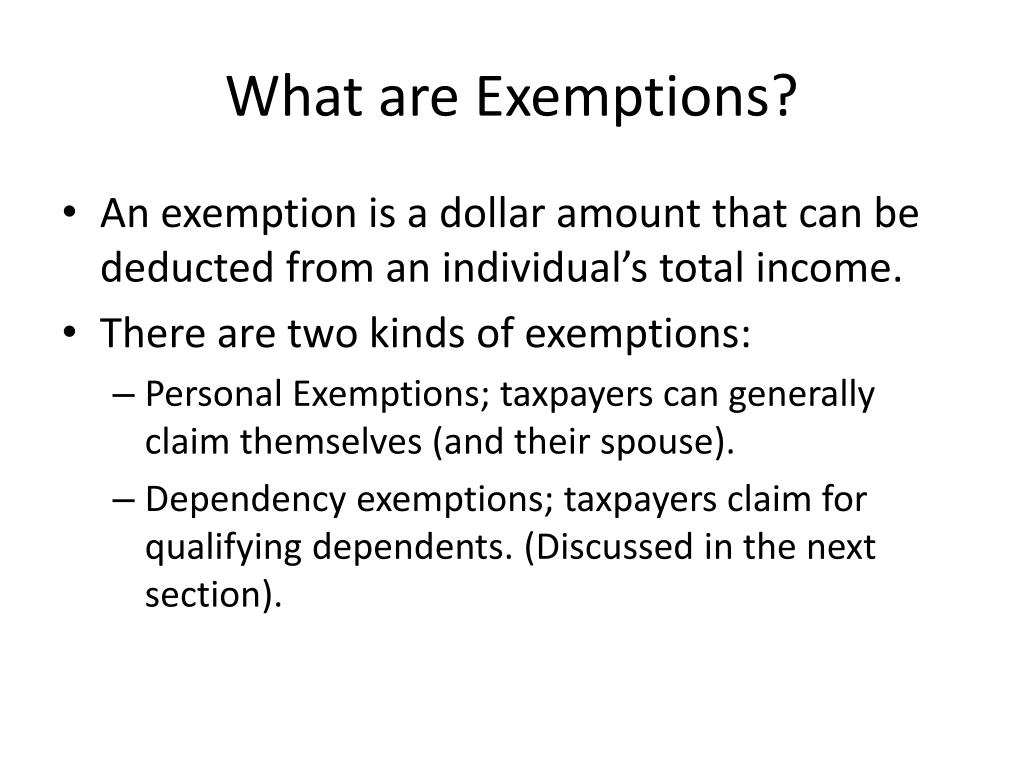Have you ever heard the word "exempt" and wondered what it truly means for you, or perhaps for someone else? It's a word that pops up in conversations about rules, about money, and about duties we might or might not have to take on. Essentially, when someone or something is exempt, it means they are let off the hook from a certain rule or a requirement that other folks usually have to follow. This idea of being excused from something is, you know, quite a big deal because it can affect all sorts of things in our daily existence.
Think about it this way: if you're told you're exempt from a particular task, it means you don't have to do it, even if everyone else does. This could be about paying a certain fee, or perhaps it's about following a specific guideline. The core idea, in a way, is about being free from a common obligation. It's a concept that touches on fairness, on special permissions, and on how different groups of people might experience the world just a little differently based on their situation.
This piece aims to clear up any confusion you might have about "exempt meaning." We'll explore what it truly signifies, how it shows up in various parts of our lives, and even where this whole idea came from. By the end, you'll have a much clearer picture of what it means to be excused from something, and how that can shape experiences for people and organizations alike.
Table of Contents
- What Does It Mean to Be Exempt?
- The Core Idea Behind Exempt Meaning
- When Does Exempt Meaning Show Up in Our Lives?
- Exempt Meaning and Everyday Situations
- Why Might Someone Be Exempt?
- How Does Exempt Meaning Relate to Rules?
- Exempt Meaning- A Look at Special Cases
- The History of Exempt Meaning
What Does It Mean to Be Exempt?
When we talk about something being "exempt," we are, in essence, talking about a special kind of freedom. It means a person, or perhaps a thing, is given a pass on something others are expected to do or deal with. This could be a duty, a payment, or some other kind of rule that typically applies to everyone else. So, if you are exempt, you are basically excused from an obligation that other people usually have to fulfill. For instance, imagine a situation where everyone has to pay a certain fee, but you, for some reason, do not. That's what being exempt is all about, you know, getting that special waiver.
This idea of being set free from a requirement can show up in many different forms. It's not just about money, either. It could be about not having to take a certain test, or not having to follow a particular dress code. The key point is that there's a general expectation, and then there's a specific instance where that expectation doesn't apply. It's almost like having a golden ticket that lets you skip a line that everyone else has to wait in. This privilege, or release, is usually granted for a particular reason, which we'll explore a bit more later on.
The Core Idea Behind Exempt Meaning
At its heart, the exempt meaning points to a situation where someone or something is not subject to a common burden. This burden could be a financial one, like having to pay taxes on certain income, or it could be a behavioral one, like needing to wear a uniform. When a person or an organization is deemed exempt, it means they are officially outside the reach of that particular demand. This isn't just a casual agreement; it's often a formal status, given through a law, a regulation, or a special permission. It's a way of saying, "You don't have to do this specific thing."
Consider, for example, how some groups of people might be released from certain rules because of their age or their role. Children under a certain age, for instance, are sometimes exempt from paying for public transport, while adults are not. This highlights how the concept of exempt meaning creates different sets of expectations for different groups within a community. It's about drawing a line, saying that for some, the usual obligation simply doesn't apply.
When Does Exempt Meaning Show Up in Our Lives?
The idea of being exempt isn't just a theoretical concept; it plays a real part in our everyday lives, often without us even realizing it. From the moment we are born, in some ways, we are already subject to certain exemptions. Think about how young children, for example, are exempt from having to pay for things like movie tickets or certain museum entries. This is a common way the exempt meaning shows up, making life a little different for various age groups. It's a rather straightforward example of how certain requirements are simply lifted for particular individuals.
Beyond age, we see this concept at work in many other areas. If you've ever heard of someone not having to pay a specific type of tax on certain earnings, that's another instance of the exempt meaning in action. Or, perhaps a school might excuse a student from a particular class or an exam due to a special circumstance. These are all ways in which the usual rules or expectations are set aside for someone, allowing them to operate outside of a common framework. It's pretty much everywhere once you start looking for it.
Exempt Meaning and Everyday Situations
Let's talk about some really common examples where the exempt meaning comes into play. One of the most talked-about areas is taxes. Certain types of income or certain organizations, like non-profit groups, are often exempt from paying specific taxes. This means that the money they bring in is not subject to the same tax rules that apply to regular businesses or individuals. It's a way the government supports certain activities or entities by removing a financial burden. This is a very significant way that the exempt meaning impacts the economy and society.
Another place you might see this is in rules about what people have to do. For instance, some jobs are considered "exempt" from overtime pay rules. This means that even if people in these jobs work more than 40 hours a week, their employers don't have to pay them extra for those additional hours, which is quite different from how it works for many other types of work. This is a pretty clear example of how the exempt meaning can shape employment conditions and what people expect from their work.
Why Might Someone Be Exempt?
The reasons why someone or something might be exempt are varied, and they usually stem from a desire to create fairness, support certain groups, or acknowledge unique circumstances. For instance, the idea of children under a certain age being exempt from specific fees is often about making things more accessible for families, or simply acknowledging that very young people don't have their own money. It's a kind of practical consideration, you know, about how things work in the real world.
Sometimes, an exemption is granted because of a person's particular role or status. Think about executive employees or creative professionals, who are sometimes considered exempt from certain labor laws because of the nature of their work and how it's structured. This is usually based on the idea that these roles involve a different level of responsibility or creative freedom that doesn't fit neatly into standard hourly work rules. It's about recognizing that not all jobs are the same, and some need a different approach.
How Does Exempt Meaning Relate to Rules?
When we think about rules, the exempt meaning often means that someone has special permission not to follow a particular one. This isn't about breaking the rule; it's about the rule simply not applying to them in the first place. For example, a student might be excused from a school's uniform policy because of their religious beliefs. In this case, the school has made a specific allowance, recognizing that the general rule would create a conflict with a deeply held personal practice. This is a pretty important aspect of how exemptions work.
This sort of release from a rule isn't just a random act; it's typically a formal declaration. It means that an authority has stated officially that a person or a thing is not bound by or affected by a certain regulation. It's a way of making exceptions within a system, allowing for flexibility and consideration of individual situations, which is actually quite common in many different settings.
Exempt Meaning- A Look at Special Cases
Beyond the everyday examples, there are some more specific instances where the exempt meaning comes into play. For example, certain types of investments might have interest that is exempt from tax. This means that any money earned from these investments doesn't get taxed, which can be a big benefit for investors. It's a way that financial systems encourage certain kinds of saving or investment by removing a typical financial obligation.
We also see this concept in older texts, where it talks about people being exempt from certain pains or weaknesses. For instance, in some spiritual writings, it's mentioned that glorious bodies or angels are exempt from our human frailties or from death. This shows how the idea of being "free from" something has been around for a long time, not just in legal or financial contexts, but also in philosophical and religious discussions. It's about being free from something that others experience as a natural part of their existence.
The History of Exempt Meaning
The word "exempt" has a pretty interesting past, actually. It comes from the Latin word "exemptus." This old Latin word meant "to remove or take out" or "to free." So, when we say someone is exempt today, we are, in a way, echoing that ancient meaning of being taken out of a group or being set free from a particular burden. This historical root helps us to really grasp the core idea of what it means to be excused from something that others are subject to. It's a very direct connection to its origins.
This historical connection shows that the concept of granting special releases or permissions is not a new one. Societies throughout time have found reasons to excuse certain individuals or groups from common obligations, whether those were taxes, military service, or other duties. The word itself carries this long history of making distinctions and creating allowances within a broader set of rules. It’s pretty much always been about setting someone apart from the general expectation.
To put it simply, the meaning of "exempt" revolves around being free or released from a duty, payment, or rule that others are typically bound by. This can be due to various reasons, such as age, specific roles, or special permissions, and it applies across many different areas of life, from financial matters like taxes to personal obligations like school rules. It's a concept that highlights how different people and organizations can have different sets of expectations placed upon them, all stemming from that core idea of being excused from a common requirement.


